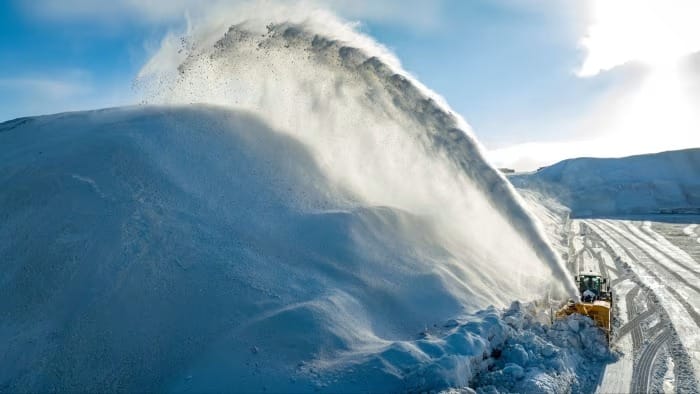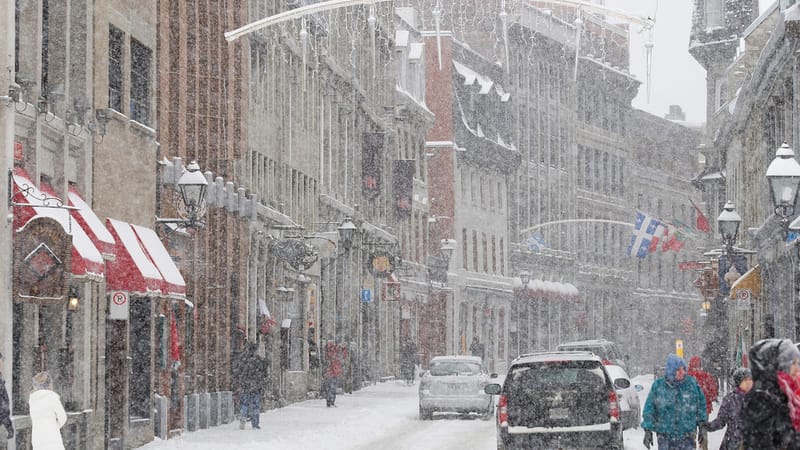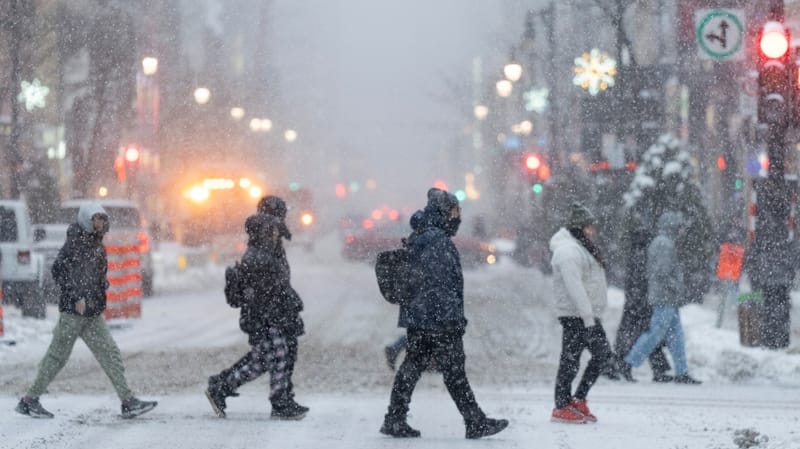Montreal vs snow: a feat of choreographed chaos
Climate change has made efforts at ‘deneigement’ more challenging than ever

Montreal's winters are marked by a relentless battle against snow and ice, turning the city into a hub of constant activity to keep roads and pavements usable. Residents spend much of the season scraping ice off car windows and trudging through dirty slush. Snow, often seen as a nuisance, costs the city nearly $200 million annually to clear—more than any other city globally.
The largest dumping site for this snow is the Francon Quarry, a vast disused open-pit mine spanning over 90 city blocks. This site, littered with plastic waste and other debris picked up during snow removal, has turned into an urban glacier. The growing snow piles have led to concerns about avalanches, raising safety alarms.
Climate change has further complicated Montreal’s snow management efforts. While the total volume of snow has decreased, it now falls over a shorter period, and freeze-thaw cycles have also shortened. As a result, the Francon site is being expanded to allow older snow deposits more time to melt. District snow depot foreman Giovanni Scattone revealed that until last summer, snow from 2008—a winter infamous for burying sidewalks—was still being cleared. “In 2008, we lost the sidewalks,” he recalled, watching carefully as visitors navigated the icy terrain near the quarry’s edge.
Snow removal is a monumental task in Montreal, involving the clearing of 10,000 kilometers of roads and pavements—roughly equivalent to the distance from Montreal to Beijing. The process is a coordinated effort, with snowplows operating in a synchronized manner. “It’s fluid, nonstop, one truck after the other,” Scattone described.
Thousands of workers labor tirelessly during winter, including teams responsible for towing cars obstructing snowplows. Advanced meteorological models and complex algorithms guide the snow-clearing fleet across the city's seven distinct microclimates, optimizing routes and timing.
Climate change has not only affected snow patterns but has also altered the economics of snow removal. According to city spokesperson Philippe Sabourin, contractors are now paid based on the volume of snow delivered to the dumping site rather than the amount that falls, ensuring payment only for snow requiring removal. This system has encouraged faster action after storms.
The private snow removal sector, however, has a contentious history, with links to organized crime and corruption. A 2015 city report uncovered cases of bid-rigging and intimidation, including threats of violence against contractors and attempts to inflate the volume of snow reported for payment. Instances like the firebombing of a suburban snow removal company have highlighted the darker side of this essential industry.
Even routine practices like de-icing come with their own challenges. The salt used to treat roads is corrosive, damaging infrastructure, including concrete, steel, and sewage systems. If left unchecked, the residue can contribute to air pollution in the warmer months. While alternatives have been tested—such as coffee grounds—these have proven less effective, though, as Sabourin noted, “The odour was marvellous.”
For Montreal residents, the effort to clear snow can feel like an endless struggle against nature’s will to blanket the city in white. Despite the challenges, the city continues to innovate and adapt in its effort to keep winter manageable.





